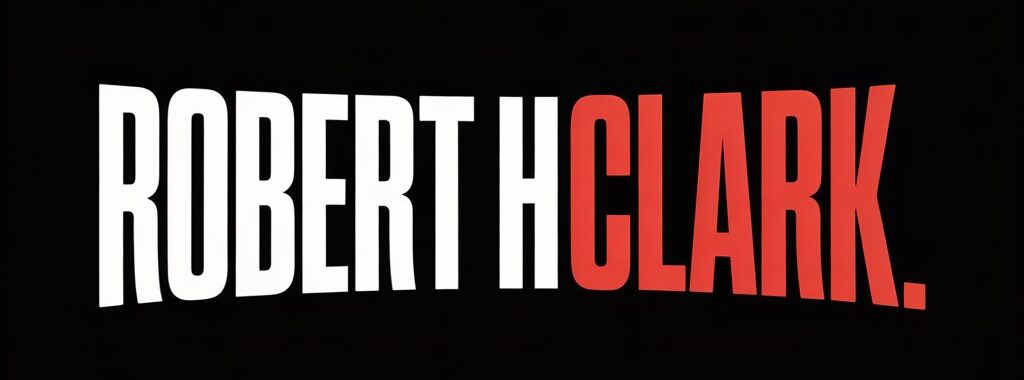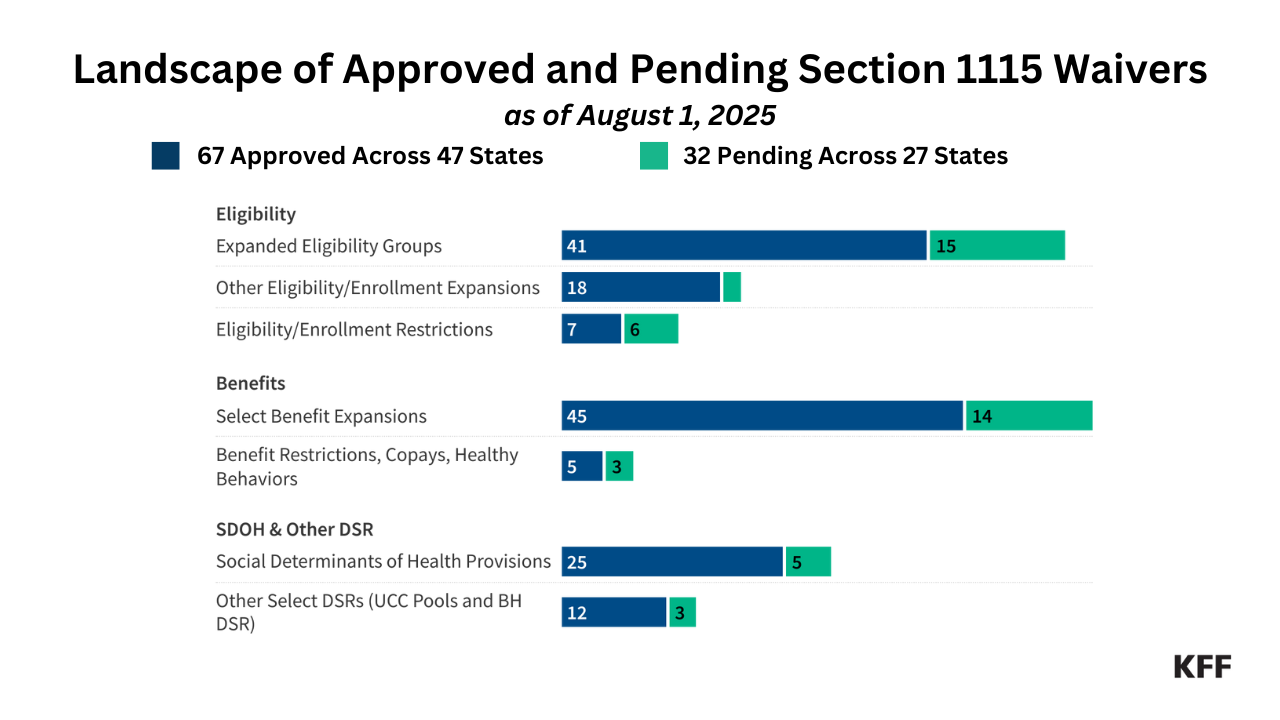Part 1115 waivers usually replicate priorities recognized by states in addition to altering priorities from one presidential administration to a different. Key Biden administration 1115 initiatives included waivers addressing enrollee health-related social wants (HRSN), pre-release protection for people who’re incarcerated, and multi-year steady eligibility for kids.
In March 2025, the Trump administration rescinded HRSN steerage issued by the Biden administration. CMS signifies this doesn’t nullify present HRSN 1115 approvals however going ahead they may take into account HRSN / SDOH requests on a case-by-case foundation. In April 2025, the Trump administration announced it could be phasing out federal funding for “Designated State Well being Packages” (DSHP) in waivers. In July 2025, the Trump administration released guidance indicating it is not going to approve (new) or prolong (present) steady eligibility waivers for kids or adults. CMS additionally announced in July it could be phasing out initiatives to strengthen the Medicaid workforce for main care, behavioral well being, dental, and residential and neighborhood primarily based companies (not depicted in maps under).
This web page tracks pending and accepted waivers in key areas of latest state exercise and can monitor Trump administration motion in these areas going ahead. Hover over particular person states to show waiver expiration dates.
Social Determinants of Well being
Social determinants of health (SDOH) are the circumstances through which persons are born, develop, reside, work and age. SDOH embody however aren’t restricted to housing, meals, training, employment, wholesome behaviors, transportation, and private security. In 2022, CMS (beneath the Biden administration) announced an illustration waiver alternative to increase the instruments obtainable to states to deal with enrollee “health-related social wants” (or “HRSN”) together with housing instability, homelessness, and diet insecurity, constructing on CMS’s 2021 guidance. In 2023, CMS issued an in depth Medicaid and CHIP HRSN Framework accompanied by an Informational Bulletin, which have been updated in 2024.
In March 2025, the Trump administration rescinded the Biden administration HRSN steerage. CMS signifies this doesn’t nullify present HRSN approvals however going ahead they may take into account HRSN / SDOH requests on a case-by-case foundation.
The “HRSN Waivers” map under identifies states with approval beneath the Biden administration HRSN framework. The “All SDOH Waivers” map identifies SDOH-related 1115 waivers extra broadly, together with those who pre-date or have been accepted exterior of the HRSN framework. For extra detailed waiver info, confer with KFF’s Medicaid Waiver Tracker (“SDOH” desk) and HRSN waiver watch (March 2024).
Medicaid Pre-release Protection for People Who Are Incarcerated
In April 2023, the Biden administration launched guidance encouraging states to use for a brand new Part 1115 demonstration alternative to check transition-related methods to assist neighborhood reentry for people who find themselves incarcerated. This demonstration permits states a partial waiver of the inmate exclusion policy, which prohibits Medicaid from paying for companies supplied throughout incarceration (aside from inpatient companies). Reentry companies goal to enhance care transitions and improve continuity of well being protection, cut back disruptions in care, enhance well being outcomes, and cut back recidivism charges. The Biden administration accepted 19 state waivers to facilitate reentry for people who’re incarcerated. The map under identifies states with accepted and pending waivers to offer pre-release companies to Medicaid-eligible people who’re incarcerated. Medicaid pre-release waivers have been pursued by each Republican and Democratic governors. For extra info, confer with KFF’s Medicaid Waiver Tracker (“Eligibility Adjustments” desk) and associated pre-release waiver watch (August 2024).
Multi-year Steady Eligibility for Youngsters
The Consolidated Appropriations Act, 2023 required all states to implement 12-month steady eligibility for kids starting on January 1, 2024. The Biden administration accepted 9 waivers that permit states to offer multi-year steady eligibility for kids (e.g., from beginning to age six). Steady eligibility has been shown to cut back Medicaid disenrollment and “churn” charges (charges of people quickly shedding Medicaid protection after which re-enrolling inside a brief time period).
In July 2025, the Trump administration released guidance indicating it is not going to approve (new) or prolong (present) steady eligibility waivers for kids or adults. The map under shows states with waiver approval to offer multi-year steady eligibility for kids. For extra info, confer with KFF’s Medicaid Waiver Tracker (“Eligibility Adjustments” desk) and associated steady eligibility waiver watch (February 2024).




